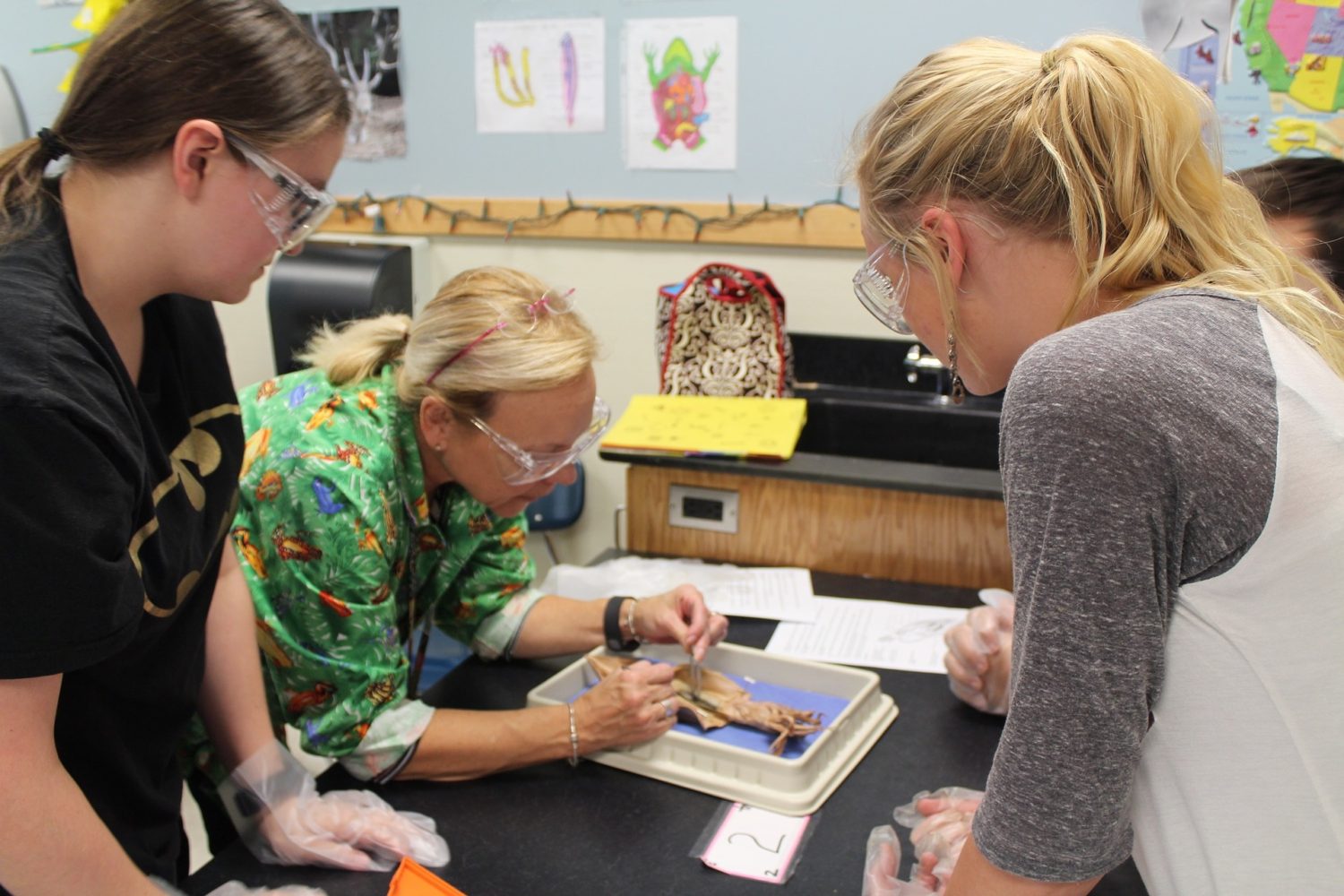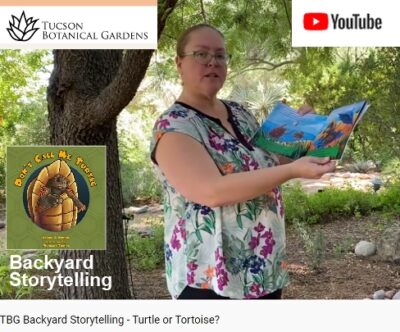Good Teaching Includes Good Strategies and Sometimes Good Theater by Marilyn Buehrer, Teacher

A science teacher shows a dissection to students.
Image by April Bryant from Pixabay
Middle schoolers can be a handful and a very tough audience much of the time. They enter sixth grade just a few weeks out of elementary school. They are still young, sweet, naïve, and loving. But somewhere around the Christmas holidays, a change in them occurs. The boys begin to smell and their voices start to crack, the girls start their periods and the hormonal mood swings begin; in other words, puberty kicks into high gear. A school year that began as calm and routine, becomes a challenge when everyone returns to school in January. Fights break out among the boys, tears flow from the girls.
It’s almost as if the “terrible twos” have returned. “No, nope, not gonna do it,” becomes a daily answer to assignments. Teaching strategies must immediately shift, or the rest of the school year could become an uncontrollable nightmare. During a teacher’s practicum year, good mentor-teaching includes how to be flexible and to change to meet the demands of students morphing from children into fledgling young adults.
There are several strategies a teacher can use to accommodate this shift.
Know the shift will happen. This means a teacher can come back to the classroom in January ready to meet her students’ new physical and emotional needs. This might mean taking a stinky, unkempt boy aside for a short, private conversation about hygiene and the importance of showering every day, using antiperspirant, and letting him know his body changes are normal and natural. It might mean consoling a weepy girl in private, with a smile and encouraging words, and maybe a hug.
Call for back-up. In January, the teacher can and should begin to call on the school counselor, vice principal, and campus law enforcement officer when necessary. A classroom teacher needs outside help in middle school; she can’t meet the changing needs of her students by herself and continue to do her primary job of teaching the subject matter. I remember one year, in the spring, I broke up a sudden fight in my classroom between two boys. I stood between the boys, my left hand on the larger boy’s chest and my right hand on the phone as I called for “back-up” from the campus police officer.
Call a parent from the classroom. Calling a parent on a particular student who’s acting inappropriately, and doing so in front of the entire class, often throws the fear of God into all the students. Asking the offender to come to the phone so the parent can chew him/her out pours cold water on the student’s bad attitude and magically brings all the kids under control.
Invite a parent to visit the class and sit at the back of the room. This can help keep those kids in the back of the room calm and behaved, but this can sometimes backfire. During a show-and-tell time of student projects, I glanced at the parent only to catch her applying makeup to a few girls. A short line had formed. I let it go, but I never asked her back even though she asked to come back. Another time, when I enlisted the help of parents on a field trip to the big city, a mother-chaperone took her group to get tattoos. Real tattoos. It’s hard to keep up with 25-30 students, ten parents, a school office employee, and a school bus driver in the big city. But these were learning experiences.
Finally, tell stories, read aloud to your students, and unleash your sense of humor. This can, and most often will, diffuse sudden and unexpected, undesirable situations.
Here are some strategies I used as a teacher:
- I always came to class prepared with some odd or interesting story to share from my own life. Kids really love hearing stories from a teacher’s own life. When I felt the students were getting restless during a lesson or quiet work time, I would sit in a chair in front of the class and quietly tell them, “I have a story to tell you.” That got their attention. They loved hearing my true stories. One story I shared, which they passed on to their families with great glee, occurred when I was a volunteer in the neo-natal critical unit at the Children’s Hospital. I was told to change the diapers on a newborn. When I saw the newborn, he was wearing a diaper, but I didn’t see any legs. I took a deep breath and braced myself to see a baby boy with no legs when I undid his diaper. To my surprise and delight, when I released his diaper…Bing! Bing!… out popped his two scrawny little, frog-like legs that had been carefully folded into the diaper to help comfort him. It wasn’t a long story, but it served its purpose. My students got stone silent and were riveted to every word as I told that true story with dramatic pauses. That short break got them quiet, refocused, and back to work.
- As a way to encourage my students before having them work quietly on a writing project, I often read a few paragraphs or a chapter of my own writing aloud to them. Fact or fiction, they enjoyed it, and it helped them get started. Never underestimate the power of reading aloud. Everyone likes to be read to sometimes. It’s the reason there’s still evening news on television where a reporter reads news off a teleprompter to an audience. The same news is available online or in a newspaper, but being read to is still comforting for many of us.
I was never afraid to show my emotions:
- I teared up at the sad parts.
- I gushed over really good simile.
- I let out a genuine laugh if what I read was truly that funny.
- When a student said something honestly funny, I laughed out loud. Kids like to know you appreciate their good, clean sense of humor, too.
Diversions are ideal ways to get students back on track emotionally, physically, or academically. It is so much easier to get a classroom under control with something unexpected and fun than to always use scolding and punishment as tactics. Here are some ways to break the monotony and boredom, and regain students’ cooperation:
- Show a short science video in English class, e.g., the birth of a baby elephant, or a short history video in science class. It could tie in with the lesson, but being unpredictable means it doesn’t have to.
- Teach your students how to weave construction paper placemats.
- Surprise one of your serious students by calling on him or her to lead a lesson.
- Occasionally, leave students with “to be continued.” Even if you forget about it the next day, they will remember and remind you to finish the story.
- Ask a few students to come up to the front of the class to demonstrate a lesson, e.g., to illustrate the concept of zero being a placeholder.
- Come to school one day with pink tips in your hair.
- Break out in an old tune. I used to sing Janis Joplin’s “Oh, Lord, won’t you buy me a Mercedes Benz….,” or all the verses to “Henry the Eighth.”
- Play a fun game that gets kids up and moving to work out the wiggles.
- Let teacher-led conversations take an off-ramp every now and then. It often leads to provocative discussions such as civil rights.
ALWAYS be your students’ leader. They want and need to know that you’re in charge and have everything under control.
Marilyn Buehrer was a public-school English teacher in Washington, California, and Arizona, a national motivational speaker and educator to home-schoolers for nearly a decade, as well as a workshop speaker at home school conventions nationwide and at public middle school consortia in Arizona. She is the developer of Lyric Power Publishing’s comprehensive Workbooks and Activity Sheets.
To learn about our latest science-based children’s books and workbooks, to read our latest blog posts about reptiles, birds, cats, and gardening, in a variety of locations, and about how the books come to be, what inspires an author to write, and many more interesting aspects of the publishing business, fill in the box below and we will add you to our email list.
Thank you!



